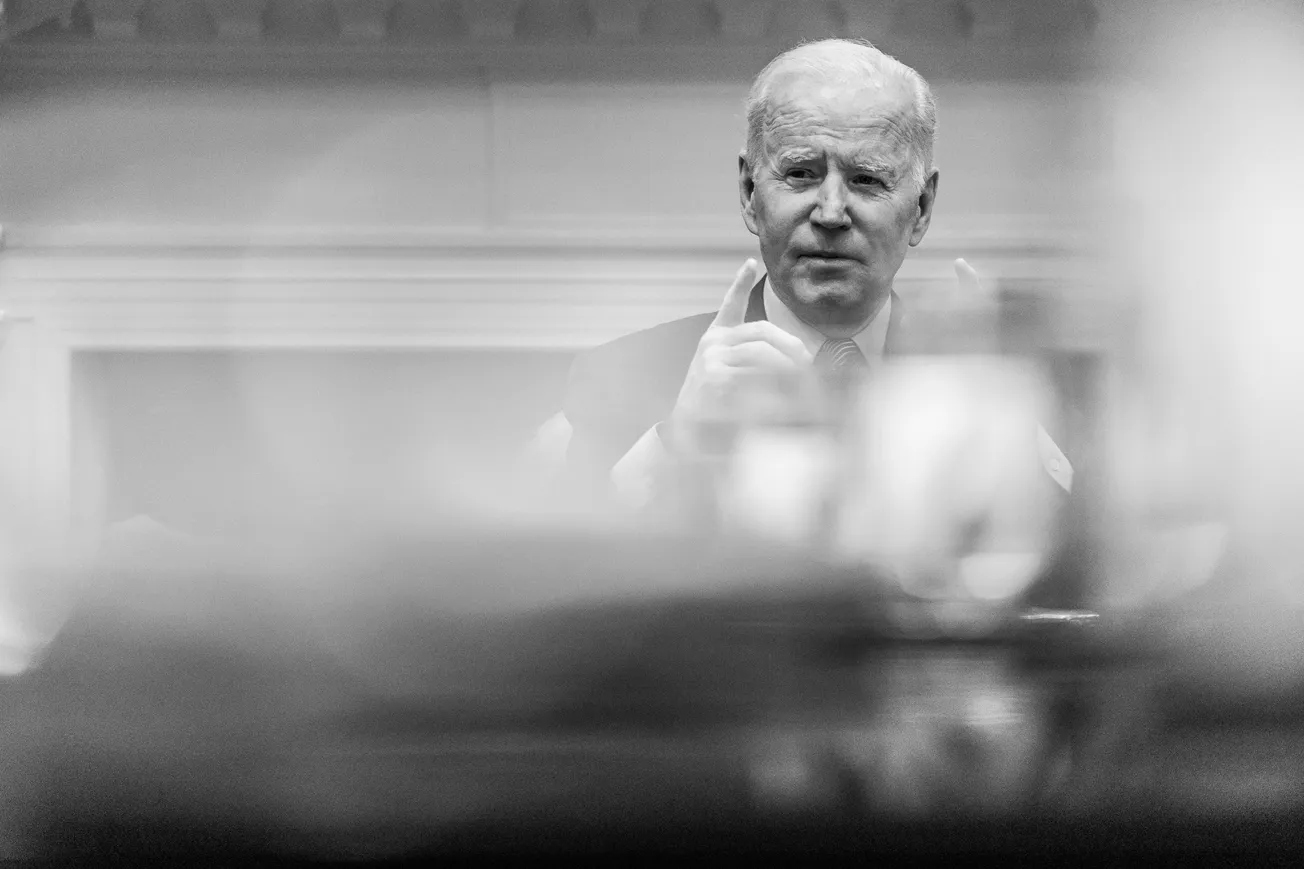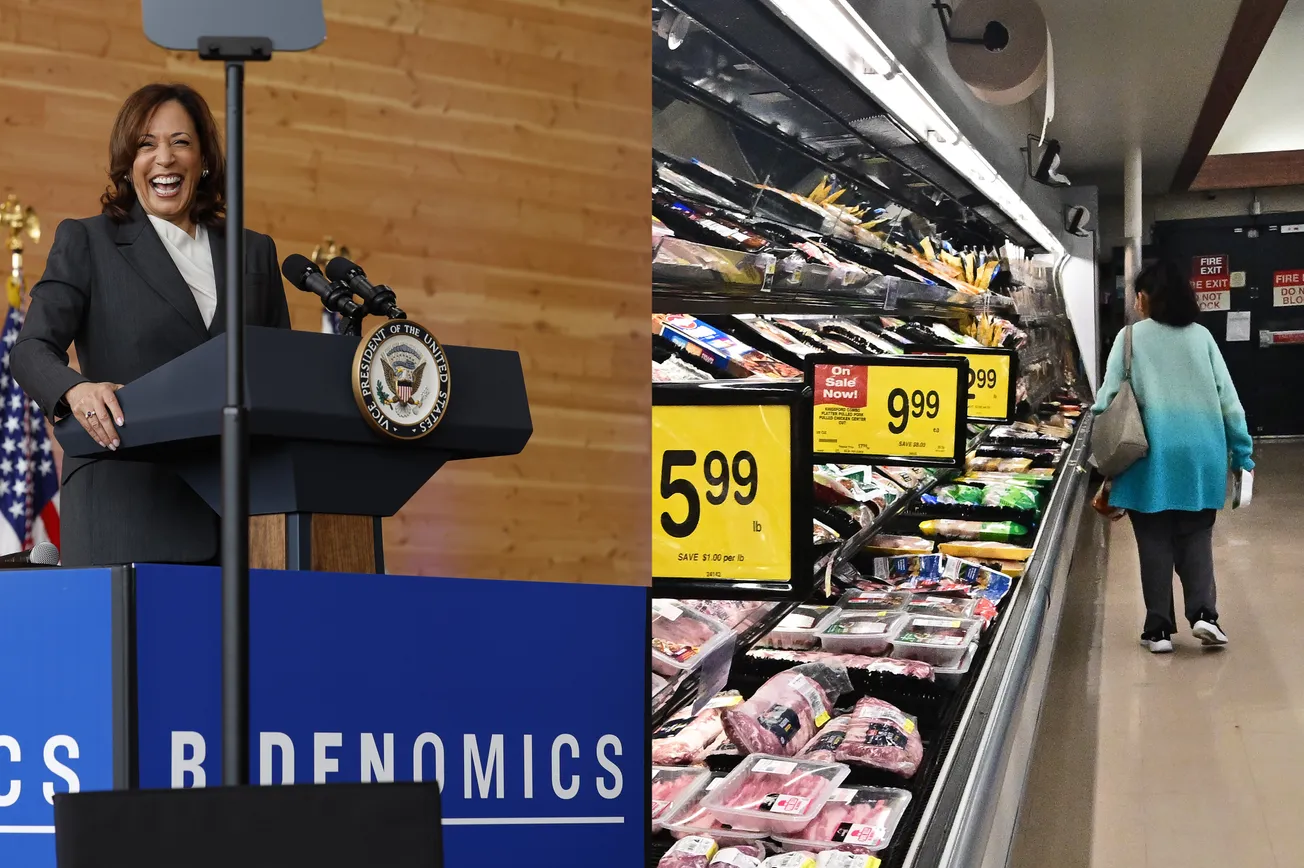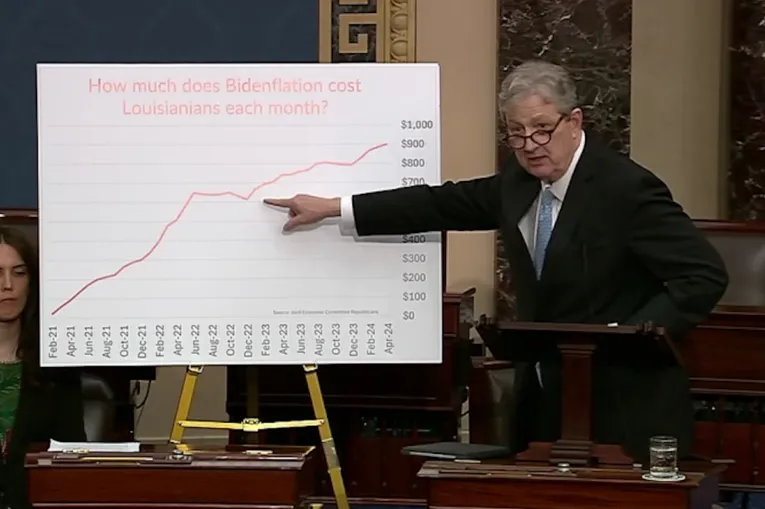In case you missed it, this is what President Biden said yesterday on the South Lawn of the White House as he was about to hop into his helicopter. After a reporter asked, “Mr. President, what is your message to Leader McCarthy? Speaker McCarthy, sorry sir,” the president replied: “Show me your budget, I’ll show you mine.”
That’s not a serious answer to the reporter’s serious question. Mr. Biden continues to stonewall Mr. McCarthy by repeatedly stating he will not negotiate on the debt limit. Meanwhile, Mr. McCarthy is publicly saying that he wants a good common-sense sit-down with the president in order to reach a compromise on spending and borrowing.
As you know, the two will meet tomorrow in the White House, and there is tremendous urgency to this get-together for the simple reason that the economy is steadily losing altitude and is heading for a recession. A sensible budget deal would help restore confidence in at least the potential for a non-inflationary economic rebound, at some future point.
So many indicators are raising the red recession flag. The Treasury yield curve is now completely upside down, with short-term rates driven high by the Fed, way above long-term rates determined by the market. The index of leading indicators keeps plunging. So does the M2 money supply. With most of the Covid stimulus out of the way, the personal savings rate has fallen significantly. Consumer spending declined in November and December. Consumer confidence continues to slide.
People are living paycheck to paycheck, with their expenses rising more than their income, across the board.
According to a Morning Consult poll, 28 percent of Americans making less than $50,000 a year are spending more than they earn. Twenty-eight percent — that’s a big number. Go up the income scale, between $50,000 and $100,000, and 14 percent are spending more than they earn. Above $100,000, it’s 9 percent. It’s not a good sign.
Banks are increasing loan loss reserves, though their capital position is in good shape. Yet with rising interest rates on credit card debt and mortgages, it’s the prudent thing to do.
Unemployment remains low at 3.5 percent, which is good, but hours worked fell in November and December — and that is not a good sign.
In the recent GDP report, business equipment investing fell significantly, which is most unfortunate because that’s a productivity driver, but output per hour is falling even while people are working less. All of that is not good. Housing is in deep recession already, with no end in sight.
The inflation story has improved, with the Fed’s favorite measure, the personal consumer deflator, slowing to 5 percent year-to-year and 4.4 percent excluding food and energy. That’s good progress, but it’s still more than twice the Fed’s 2 percent target.
Meanwhile, for typical American families, key prices continue to rise rapidly. Food at home is up nearly 12 percent; away from home it’s more than 8 percent.
Most energy and certainly gasoline prices have come well off their peaks. Yet even $3.50 at the pump on average nationwide is well more than a dollar higher than in 2021. Basically, inflation from over-spending two years ago has wrecked the economy.
Bidenesque big-government policies that were completely unnecessary were stuffing dollar bills into family bank accounts — point 1. Point 2, the Federal Reserve, caught unaware with its pants down, monetized the federal deficits and borrowing. Everybody was in denial.
Then came two negative quarters in last year’s first half. A big warning. Now, despite some temporary growth, all these indicators I just mentioned are pointing south.
Inflation’s still too high, interest rates have shot up, the Fed has pulled lots of cash out of the economy, and overregulation has fought a war with oil and gas and frankly all business.
So housing’s down, consumers are down, business investment is down — and declining corporate profits may be the next shoe to fall. We’ve had a good early-year stock market, and I always love to see rising stocks, but I never try to outguess the market.
I’m a longtime believer in stocks for the long run. Buy the S&P index, use the cheapest way available, and don’t try to outguess short-term wiggles. The Federal Reserve is unfortunately going to stay tight for quite some time. The chance of recession is well over 60 percent this year.
These are all reasons in my view to limit government. Cut spending, taxes, and regulations in order to generate a big recovery. I want free-enterprise prosperity, not big-government stagnation.
So, save America. Stop the spending.
From Mr. Kudlow’s broadcast on Fox Business News.
Larry Kudlow was the Director of the National Economic Council under President Trump from 2018-2021. His Fox Business show "Kudlow" airs at 4 p.m &. and his radio show airs on 770 ABC from 10:00 a.m. to 1:00 p.m.









